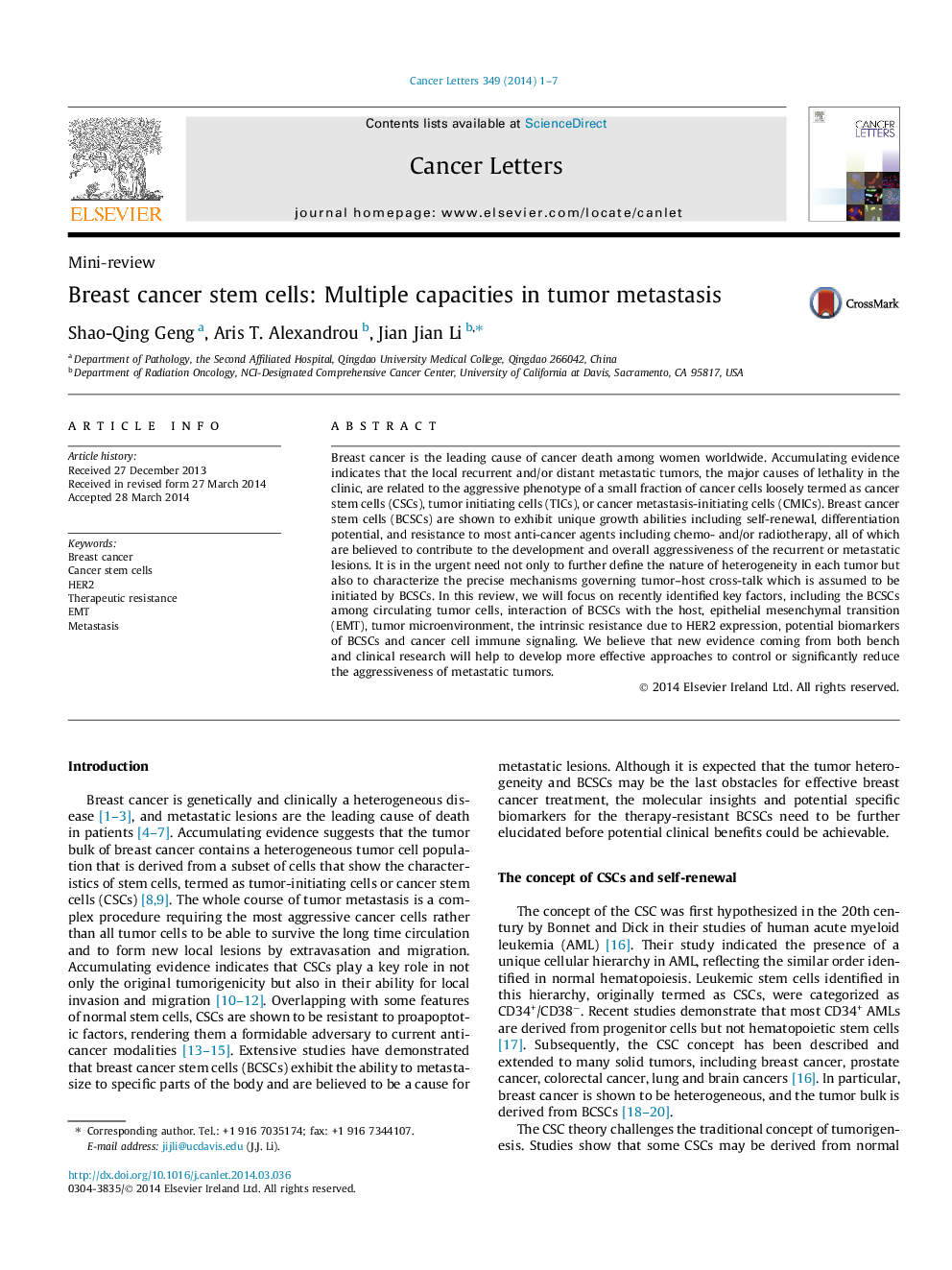| Article ID | Journal | Published Year | Pages | File Type |
|---|---|---|---|---|
| 2112637 | Cancer Letters | 2014 | 7 Pages |
Breast cancer is the leading cause of cancer death among women worldwide. Accumulating evidence indicates that the local recurrent and/or distant metastatic tumors, the major causes of lethality in the clinic, are related to the aggressive phenotype of a small fraction of cancer cells loosely termed as cancer stem cells (CSCs), tumor initiating cells (TICs), or cancer metastasis-initiating cells (CMICs). Breast cancer stem cells (BCSCs) are shown to exhibit unique growth abilities including self-renewal, differentiation potential, and resistance to most anti-cancer agents including chemo- and/or radiotherapy, all of which are believed to contribute to the development and overall aggressiveness of the recurrent or metastatic lesions. It is in the urgent need not only to further define the nature of heterogeneity in each tumor but also to characterize the precise mechanisms governing tumor–host cross-talk which is assumed to be initiated by BCSCs. In this review, we will focus on recently identified key factors, including the BCSCs among circulating tumor cells, interaction of BCSCs with the host, epithelial mesenchymal transition (EMT), tumor microenvironment, the intrinsic resistance due to HER2 expression, potential biomarkers of BCSCs and cancer cell immune signaling. We believe that new evidence coming from both bench and clinical research will help to develop more effective approaches to control or significantly reduce the aggressiveness of metastatic tumors.
